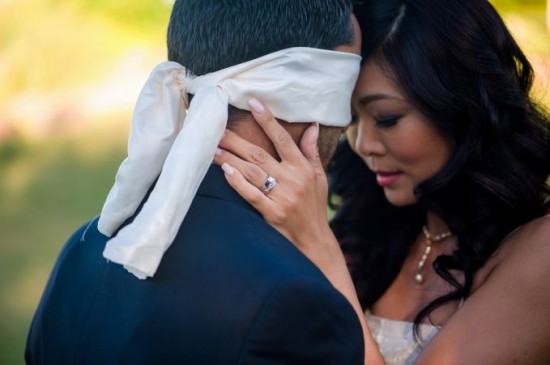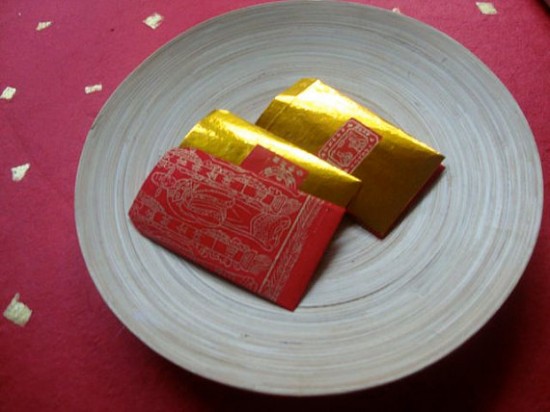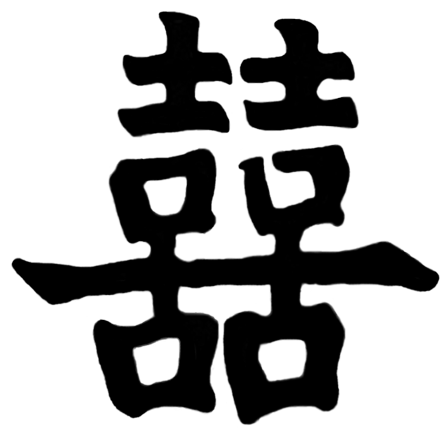When my fiancé and I began planning this whole wedding thing, we suffered from what one would call “culture shock”. Urban Dictionary (urbandictionary.com) defines ‘culture shock’ as “The shock from one culture to another often associated with laws, traditions, food, music and general lifestyle choices”.
In terms of why we suffered culture shock, it was all to do with Chinese wedding traditions.
As a Chinese girl, growing up in Australia, I’ve been brought up with an understanding of the “Western” culture and “Eastern” culture. For example, whereas most high school students are allowed to afford some level of independence, I was on a strict curfew of 11PM. Anytime after that, and I was met with a grilling from both parents, as in Chinese culture, it’s often customary for a Chinese daughter to be home at a good time at night (heck, even 11PM was ‘too late’ back then!). With that being said, I – and definitely GP – wasn’t prepared for the TONNE of traditions that came when he “put a ring on it”.
You see, in Chinese cultures, the family is the centre of every relationship. Traditionally, the woman would leave her family forever and spend the rest of her life with her husband’s family, serving her husband and respecting her in-laws. Sort of sad, huh? Luckily, in this day and age, this isn’t the case! However, traditions which include respecting one’s elders still exist to this day.
Another thing about Chinese traditions is that they are also associated with luck, prosperity, and happiness. In fact, one of the wedding motifs in Chinese weddings is this symbol here, representative of “double happiness”:
Double Happiness! / Image courtesy of gayleforman.tumblr.com
GP and I didn’t know much about these traditions when we first began planning the wedding, and they were sort of sprung on us quite suddenly. It seems to be a ‘thing’ with Chinese weddings for the parents to sort of spring their traditions on to the newly-engaged couple, so for those Chinese brides out there who are just beginning to plan their wedding, and especially those who come from a relatively traditional Chinese family like my own, these are some of the traditions that you need to be aware of:
The Auspicious Date
As mentioned previously, Chinese weddings are rife with symbology – motifs, actions, and even delicacies that are symbolic of future health, wealth, success, happiness, luck, and every other laudable thing! The auspicious date is one of the first Chinese traditions when planning a wedding. The term, ‘auspicious’ is defined as “promising success”, and therefore, the auspicious date is a date given to the couple which promises them future success, happiness, and health in their union. This is given through a Chinese soothsayer, who uses the couples’ birth dates (time and day) to calculate which date would be the best for them to be wed on.
GP and I had to wait approximately six months to get a date. We were engaged in April 2012 and got our date October 2012. We were getting pretty damn frustrated, but according to my parents, this is one of the important traditions!
Cutting the Ribbon
This tradition will happen on the morning of the wedding, as I’m exiting the hotel room to make my way to the ceremony. The ceremony is meant to symbolise my family, or more specifically, my eldest sister, Maid of Honour M&Ms, “letting me go”. This is because, in Chinese culture, it’s customary for siblings to “marry in order”. Therefore, being the middle child, I should technically be marrying second to my eldest sister. However, my eldest sister, though having a boyfriend, isn’t married yet, and therefore, she has to “let me go”.
This is done symbolically, where M&Ms is to let me out by cutting red ribbon which has been strung over the front door of the house. After this, I gift her with a present and then exit. In our wedding, this tradition will be immediately followed up by the next one…
The Auspicious Time
Like the auspicious date, the auspicious time is given to the couple to give them the best chance at a successful marriage. While the auspicious date appoints a specific date to be married in, the auspicious time is used to dictate when the groom is to “pick up” the bride. This is because, unlike “traditional” weddings where the couple don’t see each other until the start of the ceremony, in Chinese weddings, the groom picks up the bride from her parent’s house and then drives her over to his parent’s house. This “picking up” is to be done at a specific time, the auspicious time.
With our wedding, this was possibly the tradition that GP and I struggled with. It was sprung on us later into our planning, and so, it became a logistical nightmare for us! This is because of three things: we promised GP’s mamma that we won’t be seeing each other until the ceremony; we won’t be anywhere near my parent’s house nor GP’s parent’s house (my parents live in Sydney, his parents live in Christchurch, the wedding is in the Hunter Valley!); and finally, to put a cherry on the “logistical nightmare” sundae, our ceremony is meant to start at 11AM – the “auspicious time” that we were given!
So, with all of that, we had to negotiate a way to include this tradition for my parents while also keeping with the “aisle-walk” tradition. Although it took a little bit of navigating, we managed to (mostly!) smooth out the kinks in the plan. GP will arrive, blindfolded, to the place where my parents will be staying at, and “pick me up” by taking me over the threshold of the house, from the inside to the outside. We’ll then take some cute pictures – time permitted – and then he’ll about-face, take the blindfold off, and march away (hopefully having fought the urge to turn around!). We’re hoping to get pictures like this:

What people have dubbed the “Not First Look”. Sigh, so pretty… / Image courtesy of thebridaldetective photography by Jill Lauren
We’ve been told by a lot of our friends that the bride and groom are allowed to be a little bit late to their wedding, but just in case, we’re going to have our celebrant announce to our guests that we may be late.
The Chinese Tea Ceremony
After the civil ceremony at 11-11:15AM (depending on the above tradition!), we’ll be having a Chinese Tea Ceremony! This was a tradition GP and I were actually keen on having. I love the symbolism behind it. The Chinese Tea Ceremony is another one of those traditions which places emphasis on respecting Elders. In traditional Chinese society, the Chinese tea ceremony took place after the groom picked up the bride from her parent’s place. This effectively meant that only the groom’s side of the family were given tea by the couple! The bride’s parents would only be respected by the bride! However, in this day and age, it’s now more common to respect both sets of parents and their families. As such, GP and I will be holding a Chinese Tea Ceremony and serving to both of our families.
Before I go into the nuances of the Chinese tea ceremony, I guess I should first explain what it’s all about. In the Chinese Tea Ceremony, Elders are literally served tea by the couple, which they drink. This tea is served in a tea set which is bestowed upon the couple by the groom’s family as a “dowry” of sorts (however, I bought ours with my ma!).

Our Chinese tea set – can’t wait to use it! / Personal image.
The filled teacup is given to the couple by a “Good Luck Lady”. This lady is usually a family member, or even friend, who has a good family, marriage, children, and in general, life. We’ve chosen a good friend of ours to be our Good Luck Lady as she has a good marriage (to one of the groomsmen, we’ll call him Groomsman Xboy), two ADORABLE kids – a boy and a girl (which is even MORE lucky!), and a successful life in general (opening up her own business, wonderful at baking, owns their own house, etc.).
After the Elders drink, the empty cup is then returned to the couple (who hand the cups to the Good Luck Lady and attendants to wash them) and the couple are then bestowed gifts by the Elders. These gifts can range from jewellery, which is immediately placed upon the couple, to money contained within red envelopes, like these:

Image from Etsy
After that, the next couple of Elders replaces the seat.
Elders are usually served in couples (married couples, usually) although if the Elder isn’t married (widowed, divorced, separated) then they can be served on their own. In terms of who is served during the Tea Ceremony, you are classified as an Elder if you are older than the couple and married. Therefore, I’ll be serving a few elder cousins who are married, aunts, uncles and of course, my parents. This is the same with GP’s family! If you are separated, divorced, or widowed, but elder than the bridegroom couple, you are still served tea! 🙂
As for the order of service, usually the groom’s family goes first. However, as GP is a Kiwi boy, and his family aren’t exactly knowledgeable about Chinese traditions, my parents will go first, followed by his. After this, my side of the family will be served (as my parents were served first). Like all societies, Chinese society is patriarchal, and therefore, after both sets of parents are served, my papa’s side will be served, followed by mama’s, GP’s De Papa’s side of the family, and finally, GP’s mamma’s family.
For those who find it easier seeing it in some form of chronological order:
-
My papa & mama
- GP’s De Papa & mamma
- My papa’s side of the family: aunts and uncles, married cousins
- My mama’s side of the family: aunts
- GP’s De Papa’s side of the family: 1 aunt
- GP’s mamma’s side of the family: aunt and uncle
So, that’s the Chinese Tea Ceremony! Hopefully it all made sense. 🙂 The one thing GP and I are worried about is time, as if one couple takes 5 minutes per serving/gifting, it’ll take approximately one hour to get through all of the people! (I have a big family). So for those planning on doing a Chinese Tea Ceremony, make sure you take timing into account people! We’re just hoping it all works out!
Next up, I talk about the “Western” traditions we’ll be including! 🙂
So guys, what do you think of these traditions? Strange, fascinating, a mix of both?
![]()
Ms Gingham says: Fascinating!
Eileen says: “I am a Chinese-Indonesian-Australian getting married to a Dutch-Kiwi. We’ll be having our wedding up in the Hunter Valley and we’re planning it from Sydney. Although our wedding is still more than a year away, we’re trying to plan it now to save the stress later! (We’ll see how that goes).”











This is really interesting. We have done some posts on Wedding traditions too on our blog. Here are some pictures from a Japanese Wedding.
http://www.blog.paperlesswedding.com.au/2012/03/traditions-japanese-wedding.html
All the best to the couple above. I hope it all goes well.